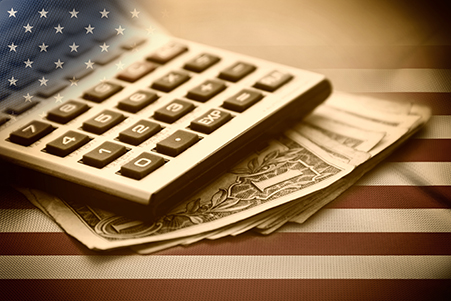Mortgages are definitely not “one-size-fits-all.” Not only are there a variety of loan types, there are two main categories of loans: government-backed and conventional. Government-backed loans are normally more affordable, come with lower interest rates, and are easier to qualify for. Because of that, government-backed loans tend to be more popular, as they make homeownership more attainable.
The following is a short guide to everything you need to know about the most popular government-backed loans.
What Are Government-Backed Loans?
Government-backed loans are secured by a federal agency. Several federal agencies offer mortgage programs, including the Federal Housing Administration, the Department of Agriculture, and the Department of Veterans Affairs.
How Do They Work?
For each loan type, the backing agency insures, or guarantees, the loan amount, which protects the lender in the event a borrower can’t repay the loan. This removes significant risk, making it easier for lenders to offer lower rates and lower-to-no down payment options.
Government-backed mortgage loans are different from conventional loans in that:
- Conventional loans are not insured by a government agency. They are riskier for lenders, so they tend to have stricter eligibility requirements.
- Conventional loans are generally more popular and accessible than government-backed mortgage loans.
- Government-backed loans have different cost structures than conventional loans, including upfront fees and mortgage insurance requirements.
- Government-backed loans have eligibility requirements that you won't see with conventional loans. For example, VA loans are reserved only for members of the military and their families.
Types of Government-Backed Loans
FHA Loans
FHA loans are mortgage loans backed by the Federal Housing Administration, and typically have lower down payments and credit requirements than most conventional loans – making them accessible to more people, especially first-time homebuyers. Depending on where you live and the cost of your home, you can get an FHA loan with as little as 3.5 % down. Not to mention you can qualify for an FHA loan with a credit score as little as 580, and may secure a lower interest rate compared to a conventional loan.
VA Loans
The United States Department of Veterans Affairs backs VA loans. VA loans are reserved for current military personnel, veterans and surviving spouses. There are no minimum credit score requirements for VA loans, but most lenders require you to have a score of at least 580.
The VA also backs cash-out refinance programs that can allow you to utilize the equity you’ve built in your home. With a VA cash-out refinance, you can refinance your current VA (or conventional loan) into a lower rate, while extracting cash from your home's equity.
USDA Loans
USDA loans are backed through the Rural Development Guaranteed Housing Loan Program, and help borrowers with low to moderate income qualify to buy a home in a suburban or rural area. With a standard USDA-guaranteed loan from a private lender, no down payment is required. That being said, you must have a credit score of 580 or above to qualify. Seeing that dense urban areas are excluded from these loans, you can check your potential home’s eligibility via the USDA website. Given all of its benefits, one drawback of USDA loans is that there is no way to remove mortgage insurance while you have the loan.
Government-backed loans are aimed to give more people the opportunity of homeownership. By guaranteeing these loans, they greatly reduce the risk for lenders. And because of this, there are strict limitations on who does or does not qualify. So before you pursue a government-backed loan, carefully review all loan requirements with your trusted mortgage partner to see if you qualify, and learn more about the application process before you apply.
CONTACT A LOAN EXPERT

